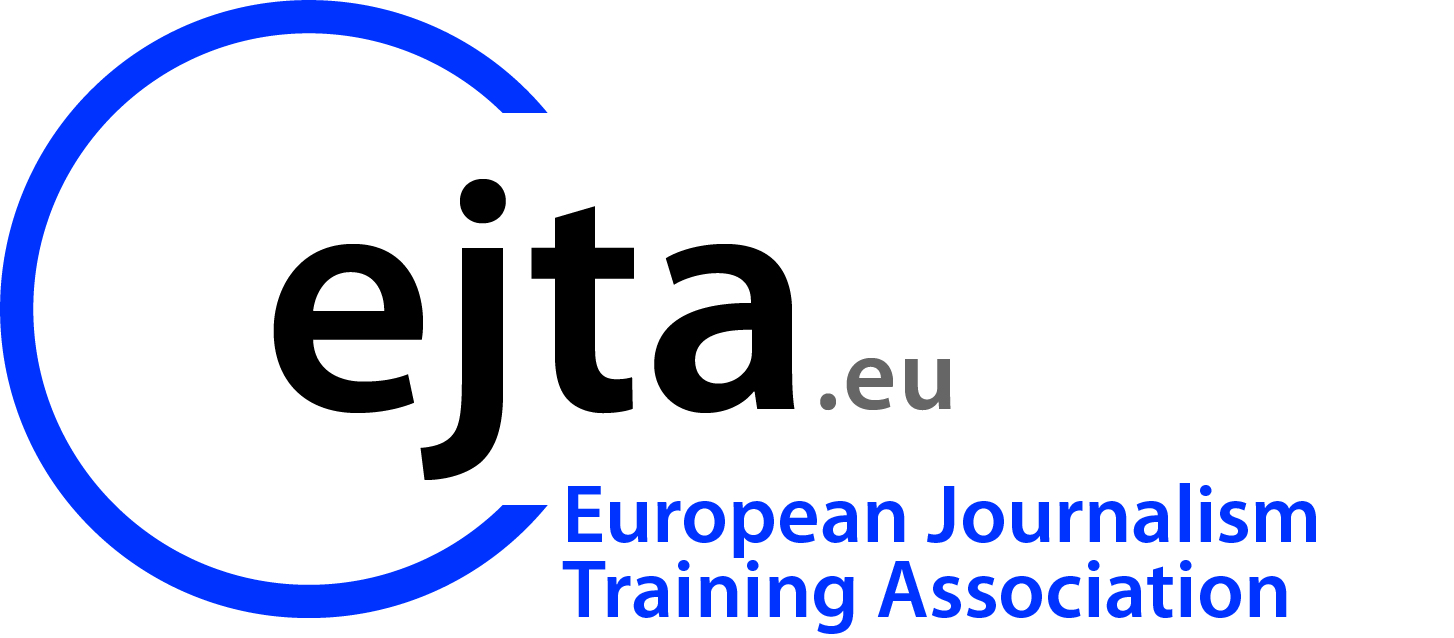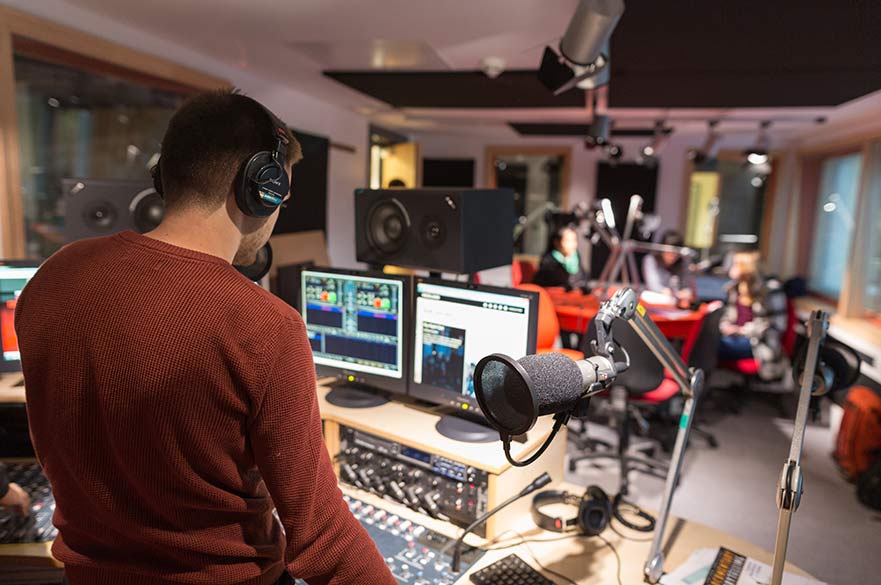Magazine Journalism MA
About this course
Start your career with the MA Magazine Journalism – where creativity meets professionalism.
Our vocational course combines practical training in multimedia journalism with specialist industry knowledge and academic challenge.
You will learn how to write for online and print audiences, working to tight deadlines to produce stories people love to read and presenting them in eye-catching ways.
Video plays a major role in magazine journalism so you’ll learn how to create content for our online and social channels which stands out from the crowd.
There’s also an in-depth look at the commercial side of the industry, including how to launch your own publication, and the chance to work alongside magazine professionals in practical workshops and industry placements.
Whether you want to be a writer, specialist reporter, social media expert, editor-in-chief or publishing director, this course provides the key skills and knowledge to start you down that road.
Industry recognition

We are proud to be part of the BAFTA Albert education partnership

This course is accredited by the Professional Publishers Association

All Journalism courses at NTU are recognised by the European Journalism Training Association
Interested in Journalism?
Dip your toe in the water with our Journalism short course programme for professionals that runs throughout the year.
What you’ll study
-
Magazine Practice (40 credit points)
The most important skill for a magazine journalist is writing. In this module, you learn how to write clearly, concisely and creatively, whether it’s a breaking news story, an in-depth feature with multiple sources or a snappy headline for a social post. You’ll also study the visual side of storytelling, using images to work with your words in beautiful layouts or filming and editing with video. On magazine news days, you’ll put these skills into practice to create and publish content to a daily deadline alongside guest editors.
Magazine Business and Innovation (20 credit points)
How magazines work commercially is the focus of this module which explores how magazine brands are created and make money and offers a chance to pitch a new brand idea to experts in our Dragons’ Den project. This module also examines how publishers deal with technological changes such as artificial intelligence.
Social Media and Audience Analytics (20 credit points)
Social media plays an integral part in journalism today while analytics data has transformed what we know about our audiences and their likes and dislikes and this module explores both. Practical workshops tackle topics including search engine optimisation, using Google Trends, and how TikTok journalism works, while seminars explore the rise of problems such as disinformation and their impact on journalism and wider society.
Media Law and Ethics (20 credit points)
You will acquire the essential professional compliance skills and practical know-how to allow you to navigate areas like defamation, privacy, and copyright. You’ll develop critical understanding of key legal principles for different platforms and learn how to recognise publication risks. You’ll also explore the effects of reporting restrictions on journalism.
Magazine Project (60 credit points)
This module brings together the hands-on skills, industry insights, and entrepreneurial thinking developed throughout the programme and you have a choice of what to do. If you have a compelling idea for a new magazine, this is your chance to make it real by creating an editorial concept, business strategy and sample publication. Alternatively, if you are passionate about a cause or contemporary issue in society, you can explore it in depth to produce a piece of long-form journalism for a specific publication.
Choose one
Podcasting Production (20 credit points)
Elevate your craft with this module, delving into podcasting's role in magazines and beyond. Gain hands-on skills to craft top-notch online audio content, targeting diverse audiences. Explore podcasting's brand-boosting potential and commercial impact. You'll create captivating podcasts, featuring guests, tailored for specific platforms.
Public Affairs for Journalists (20 credit points)
This module immerses you in the inner workings of local and central government. Uncover political dynamics, master journalism skills, and navigate interviews with officials, while getting hands-on experience crafting news features on government topics. From power divisions to EU post-Brexit dynamics, you'll dissect it all. Elevate your reporting with practical insights and lingo mastery, all while gaining a fresh perspective on political landscapes.
Data-driven Investigations (20 credit points)
Discover data-led investigative projects in journalism. Explore the fusion of industry practice and theoretical discourse to gauge the impact of data journalism on society. Uncover new digital methods to power your research and enhance your multiplatform storytelling abilities. Delve into the world of open data and alternative sources of information. Gain the skills to analyse, understand, and interpret statistical data for your news audience. Create compelling journalistic content from data-driven insights.
We regularly review and update our course content based on student and employer feedback, ensuring that all of our courses remain current and relevant. This may result in changes to module content or module availability in future years.
How you're taught
Study methods and assessment
Study methods include practical sessions, project work, tutorials, seminars, lectures and independent learning.
Assessment is by a mixture of portfolio work, projects, essays, and exams.
Work experience
Our programme thrives on immersive work experiences, integrated into core modules. Engage in ten live newsdays, crafting content for our public-facing platforms and social channels, mentored by industry grads. Embrace remote teamwork dynamics, vital in today's magazine landscape, and stay ahead with future-ready skills. Pitch new brands to industry leaders in our innovative Dragons' Den project.
For your capstone project, choose between launching an entrepreneurial magazine or producing in-depth, cross-platform journalism.
Previous students have taken their three week placement with Grazia, BBC Good Food, Woman’s Weekly, the Guardian, Slimming World, Wired, Drapers, FourFourTwo, Uncut, Olive, Mashable and Comic Relief, among many others.
We have a close relationship with Notts Live and with The Voice, the London-based title for the African-Caribbean community. Both offer students ongoing opportunities to contribute news, features, vox pops and other content throughout the year.
Other placement opportunities are promoted throughout the year by tutors and by the NTU employability team.
Professional practice
Students are encouraged to work to professional standards and are expected to be punctual, meet deadlines, work in teams and contribute ideas.
Learn a new language
Alongside your study you also have the opportunity to learn another new language. The University Language Programme (ULP) is available to all students and gives you the option of learning a totally new language or improving the skills you already have. Learning a new language can enhance your communication skills, enrich your experience when travelling abroad and boost your career prospects. Find out more about the University Language Programme.
Further information
Expert teaching staff
All our staff are current or former media professionals with substantial industry experience.
Julie Nightingale leads the MA Magazine Journalism. She teaches writing, editing, social media and production skills and supervises the Business of Magazines Project. She has more than 20 years’ experience as a journalist, beginning in local newspapers and subsequently working for magazines ranging from New Statesman and Museums Journal, to Radio Times and TV Quick. She continues to work as a freelance journalist outside NTU for specialist magazines and for The Guardian.
Careers and employability
Your career development
Previous students on the MA Magazine Journalism course have gone on to work as magazine writers in digital and print, production journalists, magazine editors, social media editors, sub-editors, and in PR, digital marketing and promotions.
Recent graduates include:
- Ben Clarke, deputy head of digital, (motorcycling), Bauer Media
- Sophie Gargett, editor, LeftLion magazine
- Christina Geggus, content writer, Grazia, Heat and Closer magazines
- Ellie Hutchings, audience trends editor, Metro.co.uk
- Georgie Kiely, editor, Ginned! magazine
- Chris King, publicity manager, 1UP PR
- Ashleigh Page, commissioning editor, Chat magazine
- Helen Rodgers, marketing manager, New Perspectives Theatre Company
- Maia Snow, news editor, The Bookseller
- Akhila Thomas, digital writer, Yours.co.uk
- Amrit Virdi, reporter, Marketing Week
- George White, sub-editor, RadioTimes.com
Campus and facilities
Our award-winning range of journalism courses are based in the Centre for Broadcasting & Journalism, centrally placed on our City Campus. This multi-million pound development includes one of the largest student newsrooms in the UK, a fully functioning TV studio with production facilities and three radio studios. Find out more ...
Entry requirements
UK students
Academic entry requirements: 2.1 honours degree and enthusiasm for, or experience of journalism.
Applicants with a 2.2 and substantial experience will be considered.
Applications from candidates with non-standard entry qualifications will be considered on an individual basis if they can demonstrate relevant professional experience.
Other requirements: All journalism applicants will be asked to submit a written piece as part of their application. View written test. This will be judged against clear criteria. When assessing sample writing manuscripts we are looking for work of at least a satisfactory (pass) standard in terms of language, content, observation, structure and voice.
Additional requirements for UK students
There are no additional requirements for this course.
Other qualifications and experience
We welcome applications from students with non-standard qualifications and learning backgrounds and work experience. We consider credit transfer, vocational and professional qualifications, and any work or life experience you may have.
You can view our Recognition of Prior Learning and Credit Transfer Policy which outlines the process and options available, such as recognising experiential learning and credit transfer.
Getting in touch
If you need more help or information, get in touch through our enquiry form.
International students
Academic entry requirements: 2.1 honours degree and enthusiasm for, or experience of journalism.
Applicants with a 2.2 and substantial experience will be considered.
We accept equivalent qualifications from all over the world. Please check your international entry requirements by country.
Other requirements: All journalism applicants will be asked to submit a written piece as part of their application. View written test. This will be judged against clear criteria. When assessing sample writing manuscripts we are looking for work of at least a satisfactory (pass) standard in terms of language, content, observation, structure and voice.
English language requirements: See our English language requirements page for requirements for your subject and information on alternative tests and Pre-sessional English.
Additional requirements for international students
If you need help achieving the academic entry requirements, we offer a Pre-Masters course for this degree. The course is offered through our partner Nottingham Trent International College (NTIC) based on our City Campus.
English language requirements
View our English language requirements for all courses, including alternative English language tests and country qualifications accepted by the University.
If you need help achieving the language requirements, we offer a Pre-Sessional English for Academic Purposes course on our City campus which is an intensive preparation course for academic study at NTU.
Other qualifications and experience
We welcome applications from students with non-standard qualifications and learning backgrounds and work experience. We consider credit transfer, vocational and professional qualifications, and any work or life experience you may have.
You can view our Recognition of Prior Learning and Credit Transfer Policy which outlines the process and options available, such as recognising experiential learning and credit transfer.
Sign up for emails
Sign up to receive regular emails from the International Office. You'll hear about our news, scholarships and any upcoming events in your country with our expert regional teams.
Getting in touch
If you need advice about studying at NTU as an international student or how to apply, our international webpages are a great place to start. If you have any questions about your study options, your international qualifications, experience, grades or other results, please get in touch through our enquiry form. Our international teams are highly experienced in answering queries from students all over the world.
Policies
We strive to make our admissions procedures as fair and clear as possible. To find out more about how we make offers, visit our admissions policies page.









